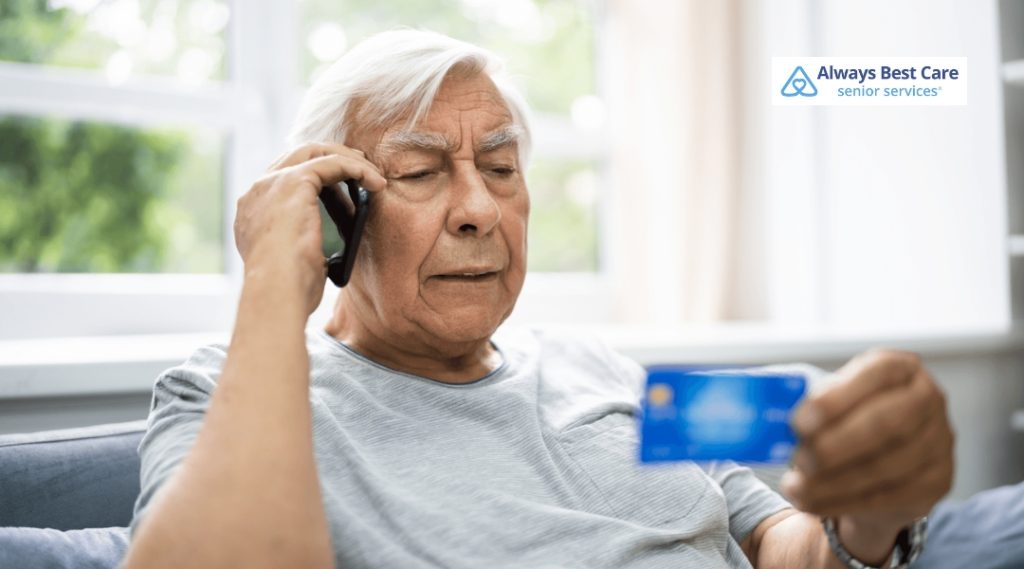Stay Safe: How Seniors Can Spot and Avoid Scams in Greater Nashville, TN

Even in a community as polite as Greater Nashville, scammers don’t knock before they come calling. And more often than not, they target our seniors who’ve spent a lifetime building their families, friendships, and finances.
Scams today come dressed in all kinds of disguises. That’s why knowing what to look for is more important than ever.
We’re diving into the common scams popping up right here in Nashville and offering down-to-earth tips on how seniors can stay a step ahead. Because peace of mind isn’t just something we hope for—it’s something we can prepare for.
Table of Contents
6 Scams Targeting Seniors in Greater Nashville
One of the most common scams begins with a simple ring of the phone. A voice may claim to be your grandchild in trouble, a police officer demanding payment to avoid arrest, or even the IRS threatening legal action. These scammers are skilled at creating urgency and fear. If you ever receive a call asking for personal information, money, or gift cards, hang up. Then, call the person or organization directly using a trusted number. And remember: legitimate agencies never demand payment over the phone.
Medicare and Health Insurance Fraud
Health-related scams can be especially dangerous because they target your well-being and personal data. Scammers may offer fake Medicare cards, ask for your Medicare number to “confirm coverage,” or promise free medical equipment you never requested. In Greater Nashville, some scammers even go door-to-door, claiming to offer services on behalf of Medicare. Never share your Medicare or insurance information unless you’re 100% sure who you’re talking to—and if you’re unsure, talk to your doctor or local health provider first.

Tech Support Cons That Demand Remote Access or Payments
If someone calls saying there’s a problem with your computer—or you see a sudden pop-up on your screen telling you to call tech support—pause before you act. These scammers want you to panic, give them access to your device, or pay for repairs you don’t need. Real tech companies like Microsoft or Apple will never call you out of the blue. If you’re ever unsure about a tech issue, call a trusted family member or local professional before clicking or paying.
Lottery and Prize Scams Asking for Money First
“You’ve won the lottery!” It sounds exciting, but it’s likely a trap. Scammers often send emails, letters, or phone calls saying you’ve won money, a car, or another big prize, but there’s a catch: you need to pay fees or taxes before you can claim it. That’s your red flag. Real lotteries and sweepstakes never ask winners to send money upfront. If it sounds too good to be true, it probably is.
Romance Scams That Build Fake Relationships
Scammers increasingly use dating sites, social media, and even online games to build fake romantic relationships. They’ll spend weeks—or even months—gaining trust, sharing stories, and building a bond. Then, just when you feel close, they ask for money for an “emergency” or to finally meet in person. These scams are heartbreaking, but they’re also very common. Be cautious with online connections, especially if they ask for money, or avoid meeting face-to-face.

Charity Scams Taking Advantage During Crises and Holidays
Many of us feel called to give during natural disasters, national tragedies, or the holiday season. Sadly, scammers know this and create fake charities to take advantage of our generosity. They may use names that sound like real organizations or pressure you to give quickly. Always research charities before donating—look for a website, contact information, and reviews. If you’re unsure, local organizations like the Better Business Bureau of Middle Tennessee can help verify if a charity is legitimate.
3 Red Flags That Could Signal a Scam
Urgent Requests That Pressure You to Act Quickly
Scammers love to create panic. They might say your bank account is frozen, your grandchild is in jail, or you owe taxes and could be arrested. They want you to act fast—before you have time to think or ask someone for help. Take a deep breath. Real organizations don’t demand immediate decisions or threaten you to pay immediately. If you feel rushed, that’s a significant warning sign.

Strange Payment Requests Like Gift Cards or Crypto
Any time someone asks for payment in gift cards (like iTunes, Amazon, or Google Play), cryptocurrency (like Bitcoin), or wire transfers—that’s a scam. These methods are hard to trace and nearly impossible to recover once sent. No government agency, business, or real charity will ever ask you to pay this way. If someone insists on it, hang up or walk away.
Spelling Errors, Suspicious Links, or Vague Messaging
Scam emails and texts often contain poor grammar, strange wording, or weird-looking links. They might say something vague like “Your account is in trouble, click here now!” without giving details. Don’t click on links or open attachments unless you know where they came from. If a message feels strange, even if it looks official, it’s safer to delete it or double-check with someone you trust.

How In-Home Care Supports Senior Safety
In-home care isn’t just about helping with daily tasks—it’s also a powerful way to protect seniors from scams and keep them safe, supported, and connected. For older adults in Greater Nashville, having a trusted caregiver nearby means having an extra set of eyes, ears, and hands when it matters most.
- Trusted Companionship: Scammers often target isolated or lonely seniors. A caregiver offers regular interaction and companionship, reducing vulnerability to fake relationships and manipulative schemes.
- Second Opinion: If something doesn’t feel right—like a suspicious phone call or unexpected letter—caregivers can help review it, verify the information, and advise against risky decisions.
- Technology Help: From spotting fake pop-ups to managing privacy settings, in-home caregivers can assist with technology and reduce the chance of falling for tech-based scams.
- Support With Financial Awareness: While they don’t manage money directly, caregivers can encourage seniors to check statements regularly and help flag anything that seems unusual or unfamiliar.
- Peace of Mind for Families: Loved ones can rest easier knowing that someone is checking in regularly, offering guidance, and helping navigate potential red flags.
In-home care creates a circle of support, helping seniors stay independent while adding an essential layer of protection. It’s about more than safety—preserving confidence, dignity, and peace of mind at home.
Always Best Care Caregivers Provide Added Protection in Greater Nashville!
At Always Best Care of Greater Nashville, we are dedicated to ensuring the safety and well-being of seniors. Our compassionate caregivers provide daily assistance, companionship, and guidance to help protect against fraud.
Contact Always Best Care of Greater Nashville at (615) 678-0293 to learn more and schedule your free consultation. Stay informed, stay alert, and stay safe.





